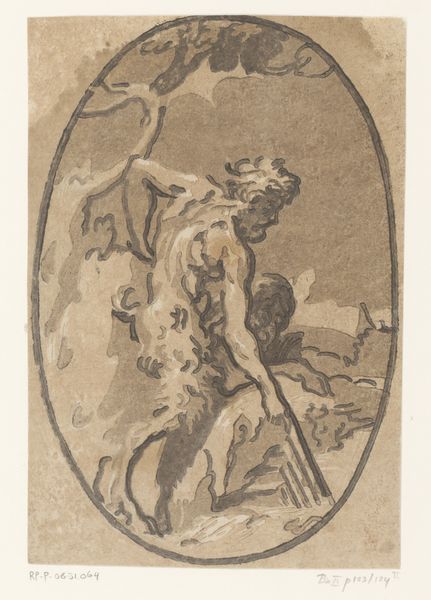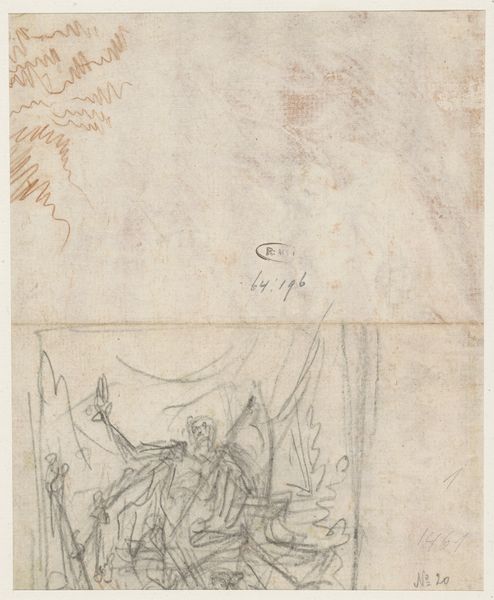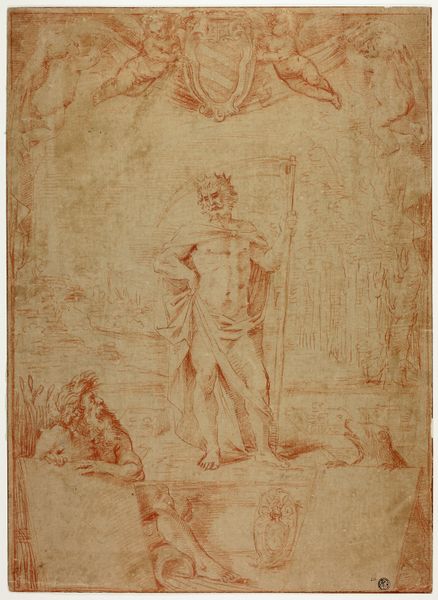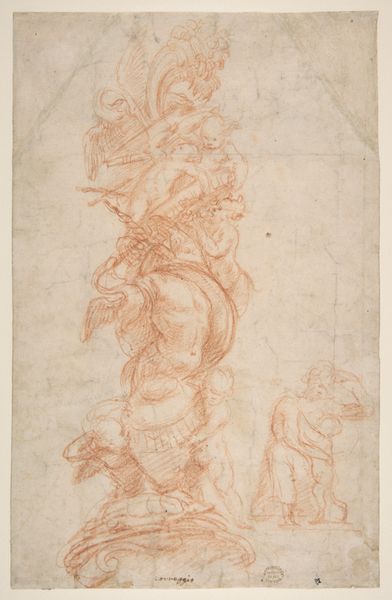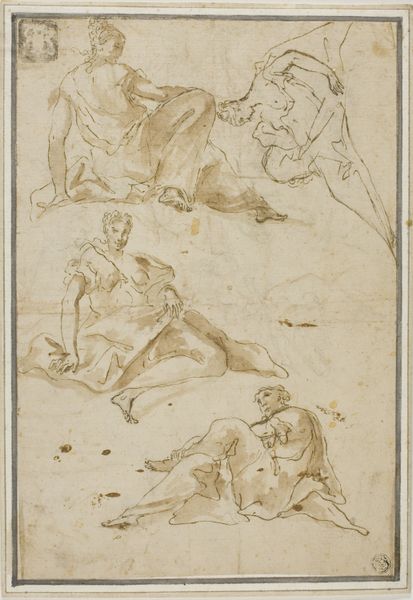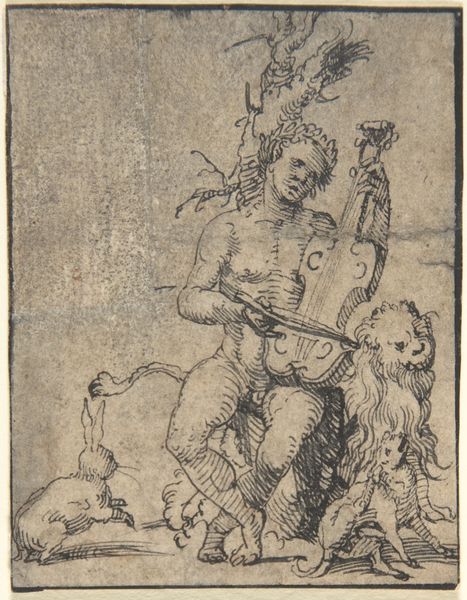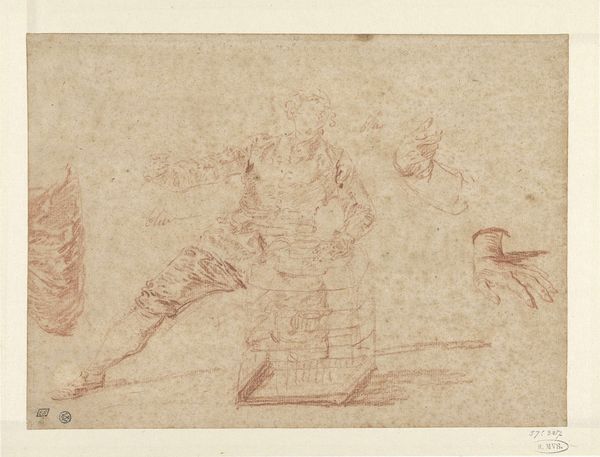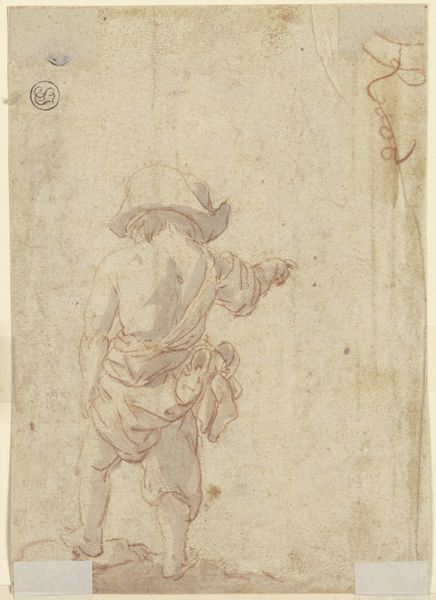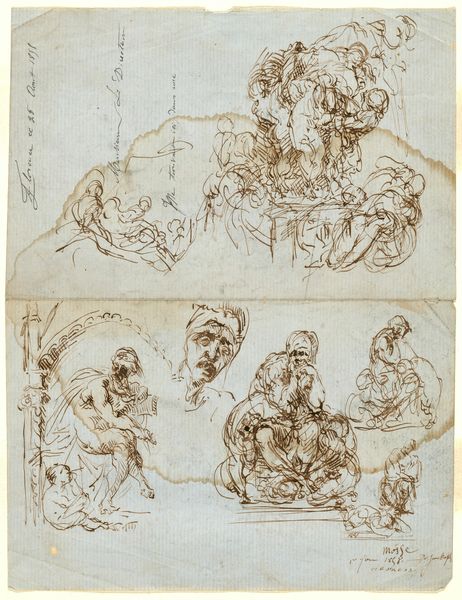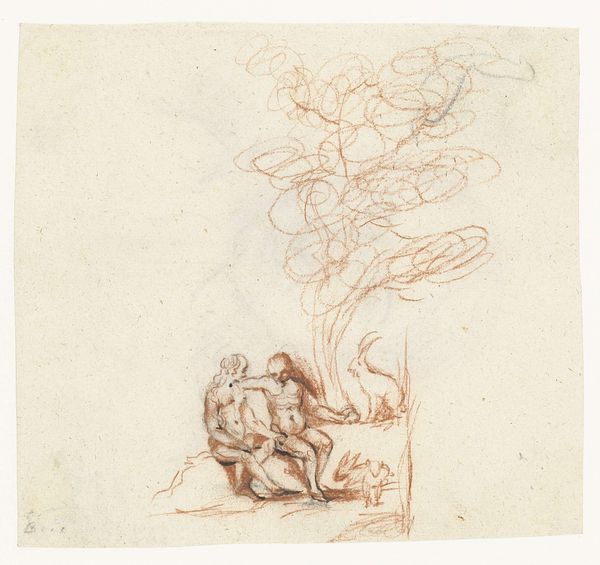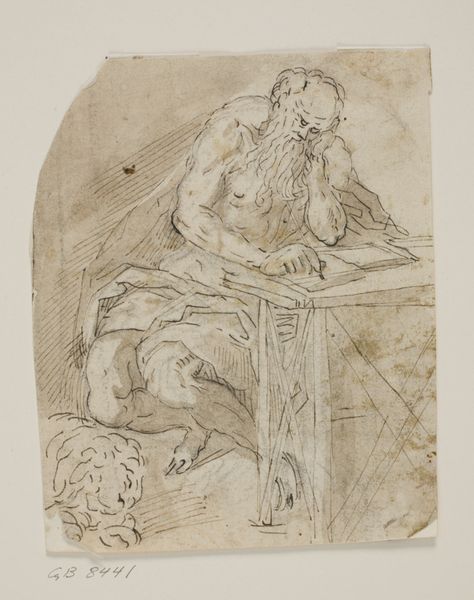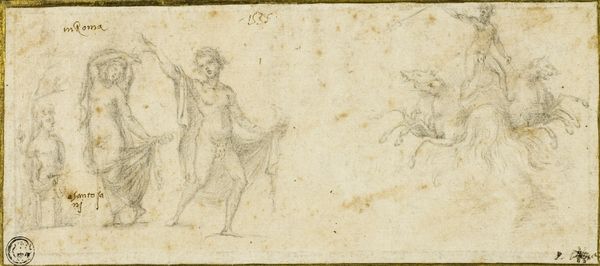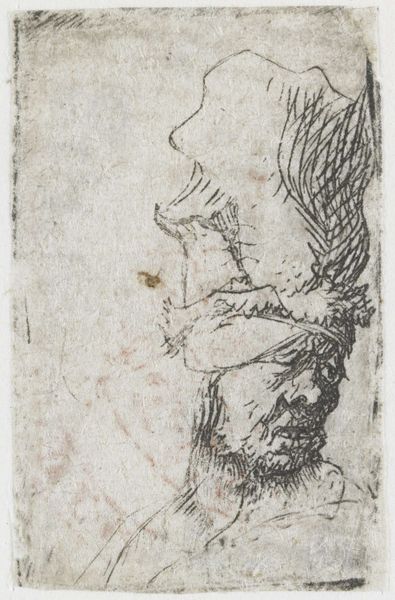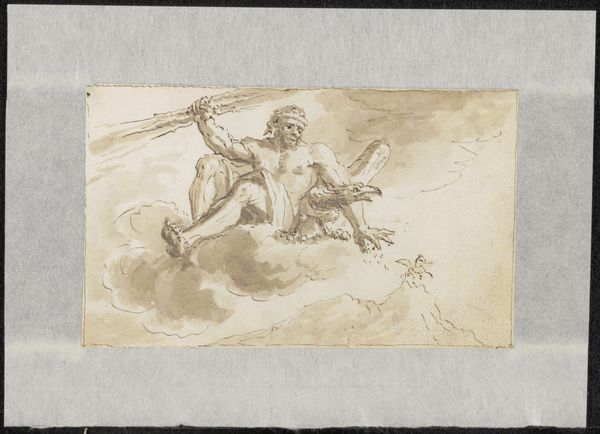
drawing, dry-media, charcoal, pastel
#
drawing
#
baroque
#
dutch-golden-age
#
landscape
#
figuration
#
dry-media
#
genre-painting
#
charcoal
#
pastel
Dimensions: height 64 mm, width 51 mm
Copyright: Rijks Museum: Open Domain
Moses ter Borch created this sketch, Holy Jerome in the Wilderness, in the Netherlands in the mid-17th century. The image depicts Saint Jerome in the desert accompanied by a lion, as told in the Golden Legend. Jerome was a popular figure in the Catholic Church, known for his translation of the Bible into Latin. But why would a Dutch artist, in a Protestant country, depict a Catholic saint? The Dutch Republic was in a period of relative religious tolerance, and Catholic imagery was still circulating, albeit in a different context. Ter Borch was probably a Catholic himself. This sketch may have been a preparatory study for a print, intended for private devotion. It shows the institutional flexibility of art during that time. The availability of archival resources and historical texts allows us to contextualize the production and reception of the artwork. The meaning of art is always contingent on its social and institutional context.
Comments
No comments
Be the first to comment and join the conversation on the ultimate creative platform.
